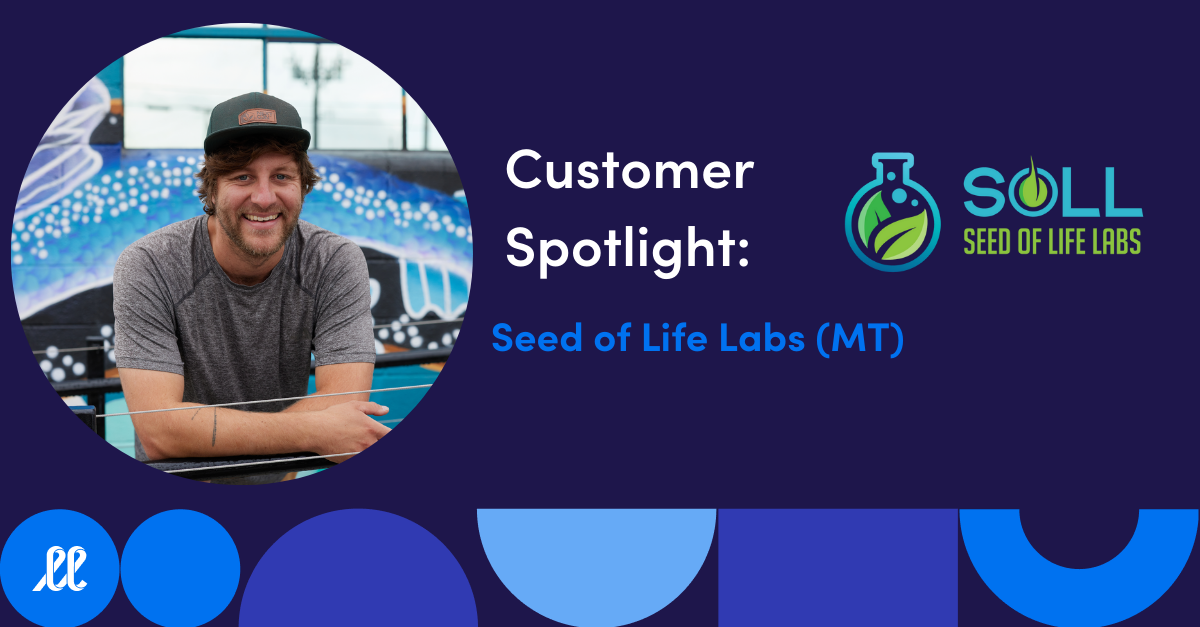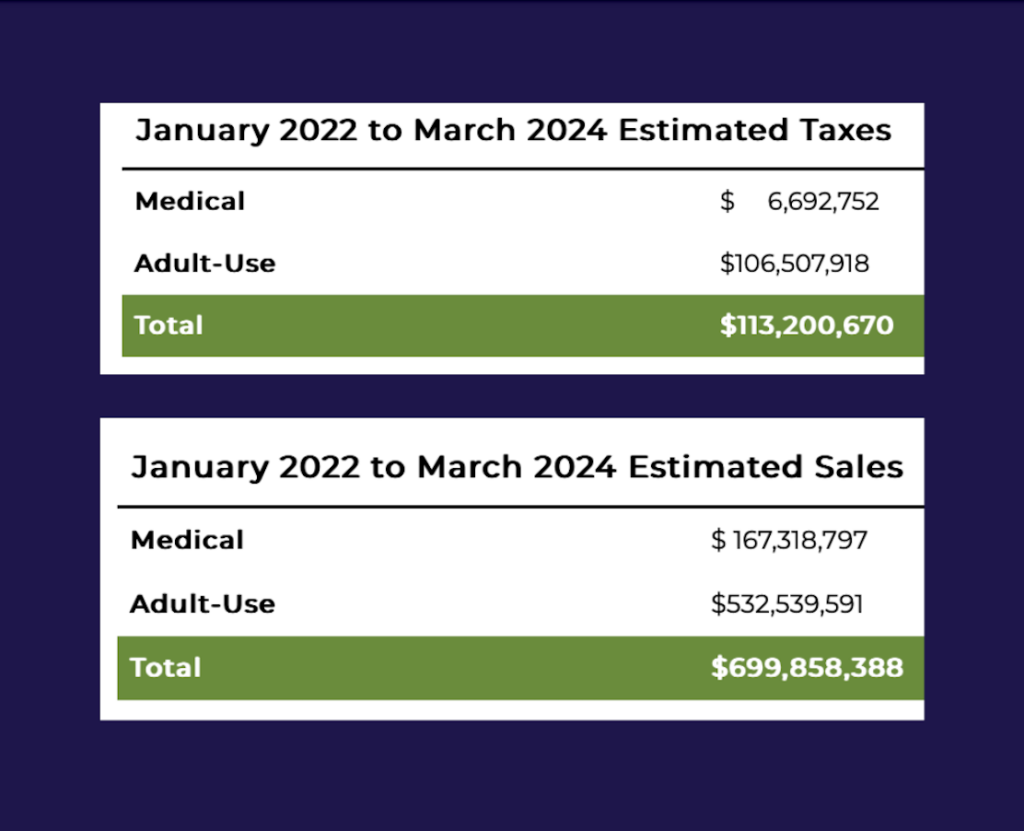
The Bud Surge in Big Sky Country: A Unique Market Dynamic & How One Customer, Seed of Life Labs, Is Thinking Differently
Montana is emerging as an unlikely hotbed for greenery that has nothing to do with its lush national parks or verdant landscapes. The Treasure State, nestled in the American West, was the second state to legalize medicinal cannabis after California in 2004, but recreational sales only opened up in January of 2022. Despite the state’s long history with cannabis, it remains a very unique market compared to legacy states. LeafLink spoke with Montana-based operators at Seed of Life Labs, Zach Schopp, CEO, and Thomas Adams, Director of Logistics, about the market, what makes it so different from others, and how SOL approaches their business. Read on about why Montana is a state to watch as its recreational market matures.
Montana’s Strangely Unique Cannabis Climate
If there’s one thing the Montana cannabis market isn’t holding back on, it’s surprises. Transitioning from a staunchly medical marijuana-only sales environment to recreational sales in a short span turned what could’ve been a linear growth curve into a complex group of challenges. Since medical use was legalized in 2004, card holders had to choose one dispensary to shop from, the ability to visit the abundant cannabis shops was not allowed until recently. Adding to the unique elements of Montana, the vast majority of businesses were vertically integrated, something that still holds true today.
Now with recreational sales open, the state is averaging around $27 million in monthly sales across a whopping 430 stores. Total sales from January ‘22 to March ‘24 for both recreational and medical is estimated to be just shy of $700 million.

The total taxes for the same time range surpassed $113 million according to Montana’s Department of Revenue, with recreational taxes accounting for over 94% of that number. With a population size just over 1.1 million, Montana is one of the smaller recreational markets yet it comes in second for the highest average annual sale per resident at $306, only behind Alaska. Surrounding states without any cannabis programs also drive significant sales for Montana.
The market, having been predominantly vertically integrated businesses, has recently only begun to explore the world of wholesale cannabis. Prior to this, most dispensaries cultivated and sold their own products, limiting variety for customers. With wholesale purchasing still a new concept for the state and the vertically integrated structure a commonality, operators are leaning into trading products to bring consumers more options. Selling flower to other stores is the most challenging of the products given the vertically integrated business structures, and a lower barrier to grow flower. With the exception of a few places, outdoor growing is prohibited for cultivators which adds to the complexity. Operators with the ability, and operational know-how, to produce more technically difficult products like concentrates and vapes are finding some success cross-selling to shops that don’t have that capability.
Another unique element to the state is the preference for customers to purchase deli-style flower versus pre-weighed and packaged goods. Despite its long history with medical cannabis, Montana resembles an emerging market in many ways and it’s a market being closely watched.
A Seasoned Stance: How Seed of Life Sowed the Right Seeds
Seed of Life (SOL) was founded in 2017, but the knowledge about operating in cannabis started way before that for CEO Zach Schopp. With 2 years into recreational sales, SOL is taking a different approach to the market. Their staff of over 90 individuals spans across 6 stores, from Billings to Fairview, and 3 cultivation facilities. SOL is cultivating everything from premium flower, to edibles, to cartridges, to concentrates; and while products stocked at their stores are primarily their own, the desire to offer more variety is not going unnoticed.
Montana’s legal cannabis market is on the path to maturing as a horizontal market; and as the consumer expands their taste and knowledge of other brands, the need to bring more options to shelves has become prevalent. People want variety when they shop and adopting the wholesale element will allow operators in the state to offer just that. Right now, SOL continues to drive significant demand with consistent lines out the door. They’ve found success by focusing on a few different priorities like quality, locations for shops, and an awesome work culture.
As a state that has had medical sales for 20 years, customers have a certain expectation for the products being sold, so quality is critical to success. SOL has been focusing on bringing the absolute best cannabis product to their state. Their 3 cultivation centers follow rigorous cleaning, testing, and processing procedures to ensure that customers keep coming back. Their Cultivation Director travels between sites to monitor facility parameters, go through operational processes, and more to keep up with their rigid standards. When a customer walks into any of the SOL stores, they are greeted by a well-versed and seasoned professional who can guide them through everything. SOL also implements a robust training program for budtenders for in-house products but also any outside product that hits their shelves.
“We’re really proud of the work culture we’ve built at Seed of Life,” said Zach Schopp, CEO of SOL. “In the first paragraph of our handbook it lays out that we want our employees to grow with the company. We want to scale and create something big together, but that only works when our employees grow along with us. I think that type of culture is pretty rare for cannabis and I love to see our employees show such much enthusiasm and love for what the plant can do.”

Building on the quality aspect to SOL, branding also plays a huge part in their success. With over 430 shops in the state, competition can be fierce. Having a brand strategy that makes your product pop and brings customers into the shop makes all the difference. While it starts in the garden it also includes choosing the best locations and overall customer experience. Montana’s number one export is tourism; and while many shops have opened up in major tourist areas, it means that competition is even higher and sales can be sporadic. The city of Missoula has the most dispensaries per capita in the US with Medford, Oregon behind it. SOL has a more holistic approach to the market and opened shop in areas with the focus of building and supporting the community around them versus tapping tourist routes. With 6 shops open now and more on the way, the focus on building a sustainable community is paying off.
Looking Ahead: Montana Cannabis Market’s Transformation
The road ahead for Montana’s cannabis market is one of continuous transformation. The legacy of vertical integration and the current push toward horizontal models are shaping the market, defining the rules of engagement for both established players and newcomers.
Seed of Life’s story is a great example of building a holistic strategy behind a business that is focused on quality, employee satisfaction, and supporting local communities. As Montana’s recreational cannabis sector evolves, lessons can be learned from operators like SOL.
“You have to find a balance and that’s what cannabis is doing as a whole, finding balance. Businesses need to find what works for them and what’s really going to ensure you’re still around in 2 years,” said Zach.
Seed of Life Labs has been a LeafLink customer since 2022, you can find their menu HERE.